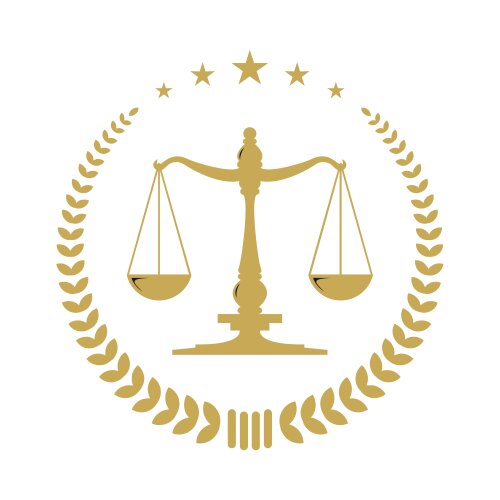Best Collaborative Law Lawyers in Islamabad
Share your needs with us, get contacted by law firms.
Free. Takes 2 min.
Free Guide to Hiring a Family Lawyer
List of the best lawyers in Islamabad, Pakistan
About Collaborative Law Law in Islamabad, Pakistan
Collaborative Law is a legal practice that aims to resolve disputes in a non-adversarial manner, promoting cooperation and mutual agreement instead of traditional litigation. It is a voluntary process in which parties, along with their lawyers, work together to find solutions that meet everyone's interests. Collaborative Law in Islamabad, Pakistan provides an alternative approach to resolving legal conflicts, focusing on open communication and negotiation.
Why You May Need a Lawyer
While Collaborative Law encourages cooperation, it is still important to have legal representation to ensure your rights are protected. Some common situations where you may require a lawyer in Collaborative Law include:
- Divorce or Family Disputes: Collaborative Law can be used to settle issues related to separation, child custody, property division, and spousal support.
- Business Partnerships: When conflicts arise within business partnerships, Collaborative Law can help facilitate discussions and reach mutually beneficial agreements.
- Estate Planning: In cases where beneficiaries or family members have disagreements regarding wills, trusts, or inheritance, Collaborative Law can assist in resolving these disputes amicably.
Local Laws Overview
In Islamabad, Pakistan, Collaborative Law operates within the framework of the Family Courts Act, 1964, and the Family Courts Rules, 1965. These laws emphasize the importance of resolving family disputes through amicable means. Collaborative Law is recognized as a legal process that allows parties to focus on finding effective solutions while ensuring privacy and confidentiality.
Frequently Asked Questions
Q: How does Collaborative Law differ from traditional litigation?
A: Traditional litigation involves taking a dispute to court, where a judge makes a final decision. Collaborative Law, on the other hand, focuses on resolving conflicts through negotiation and cooperation, with the assistance of specially trained lawyers.
Q: Will my Collaborative Law discussions and agreements be legally binding?
A: Yes, any agreements reached through Collaborative Law can be made legally binding by submitting them to a court for approval, ensuring their enforceability.
Q: What are the advantages of Collaborative Law?
A: Collaborative Law offers various benefits, such as preserving relationships, confidentiality, and control over the outcome. It also tends to be more cost-effective and time-efficient compared to traditional litigation.
Q: Can Collaborative Law be used in all types of legal disputes?
A: Collaborative Law is most commonly used in family law matters, but it can also be applied to business disputes, estate planning conflicts, and other civil matters that prioritize cooperative resolution.
Q: How do I find a Collaborative Law lawyer in Islamabad, Pakistan?
A: To find a lawyer specializing in Collaborative Law, consider contacting the Islamabad Bar Council or consulting the Pakistan Collaborative Practice Group, a professional organization of lawyers trained and experienced in Collaborative Law.
Additional Resources
- Pakistan Collaborative Practice Group: www.pakistan-collaborative-practice-group.com
- Islamabad Bar Council: www.islamabadbarcouncil.org.pk
- Family Courts Act, 1964: www.pakistani.org
Next Steps
If you require legal assistance in Collaborative Law in Islamabad, Pakistan, it is recommended to:
- Research and gather more information about Collaborative Law to understand its benefits and process.
- Contact the Islamabad Bar Council or Pakistan Collaborative Practice Group to find a qualified lawyer specializing in Collaborative Law.
- Schedule consultations with prospective lawyers to discuss your specific situation and assess their expertise.
- Once you have chosen a lawyer, work closely with them to navigate the Collaborative Law process and reach a mutually satisfactory resolution.
Lawzana helps you find the best lawyers and law firms in Islamabad through a curated and pre-screened list of qualified legal professionals. Our platform offers rankings and detailed profiles of attorneys and law firms, allowing you to compare based on practice areas, including Collaborative Law, experience, and client feedback.
Each profile includes a description of the firm's areas of practice, client reviews, team members and partners, year of establishment, spoken languages, office locations, contact information, social media presence, and any published articles or resources. Most firms on our platform speak English and are experienced in both local and international legal matters.
Get a quote from top-rated law firms in Islamabad, Pakistan — quickly, securely, and without unnecessary hassle.
Disclaimer:
The information provided on this page is for general informational purposes only and does not constitute legal advice. While we strive to ensure the accuracy and relevance of the content, legal information may change over time, and interpretations of the law can vary. You should always consult with a qualified legal professional for advice specific to your situation.
We disclaim all liability for actions taken or not taken based on the content of this page. If you believe any information is incorrect or outdated, please contact us, and we will review and update it where appropriate.















